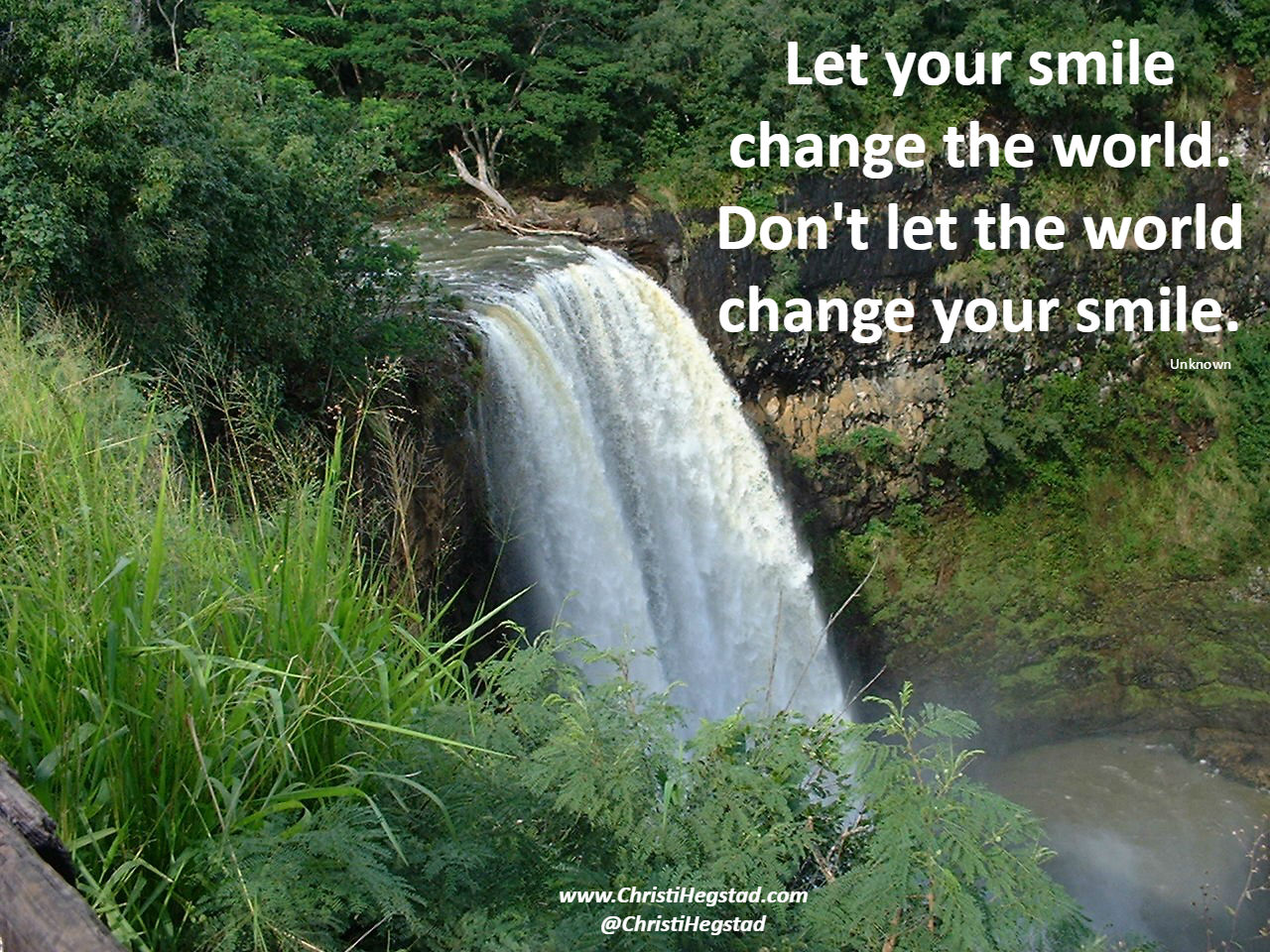
Dear Dr. Christi,
I know living with more positivity would benefit me and those around me. I want to be more positive – and actually feel like I used to be. But these days I find it harder and harder to maintain a positive mindset. Suggestions?
~ Claire B.
Dear Claire,
In this day and age, positivity definitely requires conscious attention and commitment, and I appreciate your desire to grow in this regard. Like you said, a positive mindset can benefit you as well as those around you; research shows improvements in health, goal achievement, job satisfaction, and relationships, to name just a few.
Not to mention that a positive person can be a breath of fresh air, a delight to be around, and infuse a room or an organization with hope for the future.
It is those reasons that prompt me to be diligent about positivity. I know life isn’t all puppies and rainbows, and I’m not advocating head-in-the-sand living. I also know that we accomplish a great deal more when we approach even the most difficult situations through a lens of positivity.
Here are a few strategies you can begin implementing immediately:
Fuel your mind with positivity.
When I feel myself spiraling downward, self-talk works wonders…but sometimes I need others’ positivity to lift me up. Pay close attention to your environment and what you choose to take in. Some of my favorite sources: inspiring books (search my blog or Instagram for many recommendations), motivational podcasts, TED Talks (start with Shawn Achor!), solution-oriented blogs and articles, and so on. Quotes can also provide a great, quick boost of positivity.
Please note this step may also require you disengage from some of your current habits. Facebook feed filled with negativity and fear-mongering? Unfollow people or take a Facebook sabbatical. Office politics the favorite topic of breakroom complaining? Learn techniques to change the subject or go for a walk on your break instead. Some activities you do on a daily basis (or in many cases, multiple times a day) may be feeding you with negativity without you even realizing it.
Surround yourself with positivity.
Pay attention to the background noise (murder-and-mayhem TV shows filling the room?) and other aspects of your environment that detract from your positivity, again perhaps without you realizing it. For many, even excess clutter invokes stress and negativity; if that’s you, invest some time in cleaning up your space so that you can live, work, and lead in surroundings that support your growth. Make sure the pictures on your desk, the artwork on your walls, and everything within your sphere of influence says what you want/need to hear.
Perhaps more importantly, surround yourself with people who make you better. We all benefit from a variety of influences: encouragers, meaning-makers, cheerleaders, perspective-givers, and others who inspire and challenge us to be our best possible selves. This does not mean surrounding yourself with “yes men;” some of your greatest champions will be those who push you and don’t allow you to settle for less than you’re capable of.
And oftentimes those people will include trained professionals: coaches, therapists, healers, teachers, and others who hold your best interests high.
Take positive action.
Action is our greatest antidote to fear and frustration. If you’re unhappy about something, do something. I do want to categorize this, however, and I think the best way might be with an example.
Mother Teresa, a model of peace and compassion, was apparently once asked to participate in an anti-war rally. She refused. When asked why, she essentially replied that she had absolutely no interest in an anti-war rally, but “As soon as you have a pro-peace rally, I will be there.”
See the difference? Move toward what you want to create. Don’t waste your energy fighting what you dislike.
Unhappy with the current political climate? What does the ideal look like – and what action will you take (speaking, writing letters, making phone calls, joining nonprofits, donating money) in favor of that vision? Frustrated with your organization’s lack of involvement in the community? Envision what its role could be, then take action – start a social good committee, volunteer, create a proposal – in that direction.
Also, Please Remember This:
Being positive does not mean “happy all the time.” Part of our rich human experience involves all emotions: joy, sadness, excitement, fear, wonder, grief, and countless others. I think I’ve experienced all of those feelings in the past 10 days alone!
But positivity helps. You learn to look for the silver lining or the ray of hope. Instead of asking, “Why me?” you train yourself to ask, “What’s the lesson here?” You seek solutions rather than dwelling in the problems. You get things done, and you serve as a model for others.
I hope these ideas help you, Claire, and you might find a few more ideas here, too. The world needs more positivity, optimism, problem-solvers, and action-takers working in favor of meaning and purpose. I’m glad you find it important enough to seek!
Do you have a question about meaningful work, purposeful living, positive leadership, or anything in between? Email it for a future Ask Dr. Christi post!





